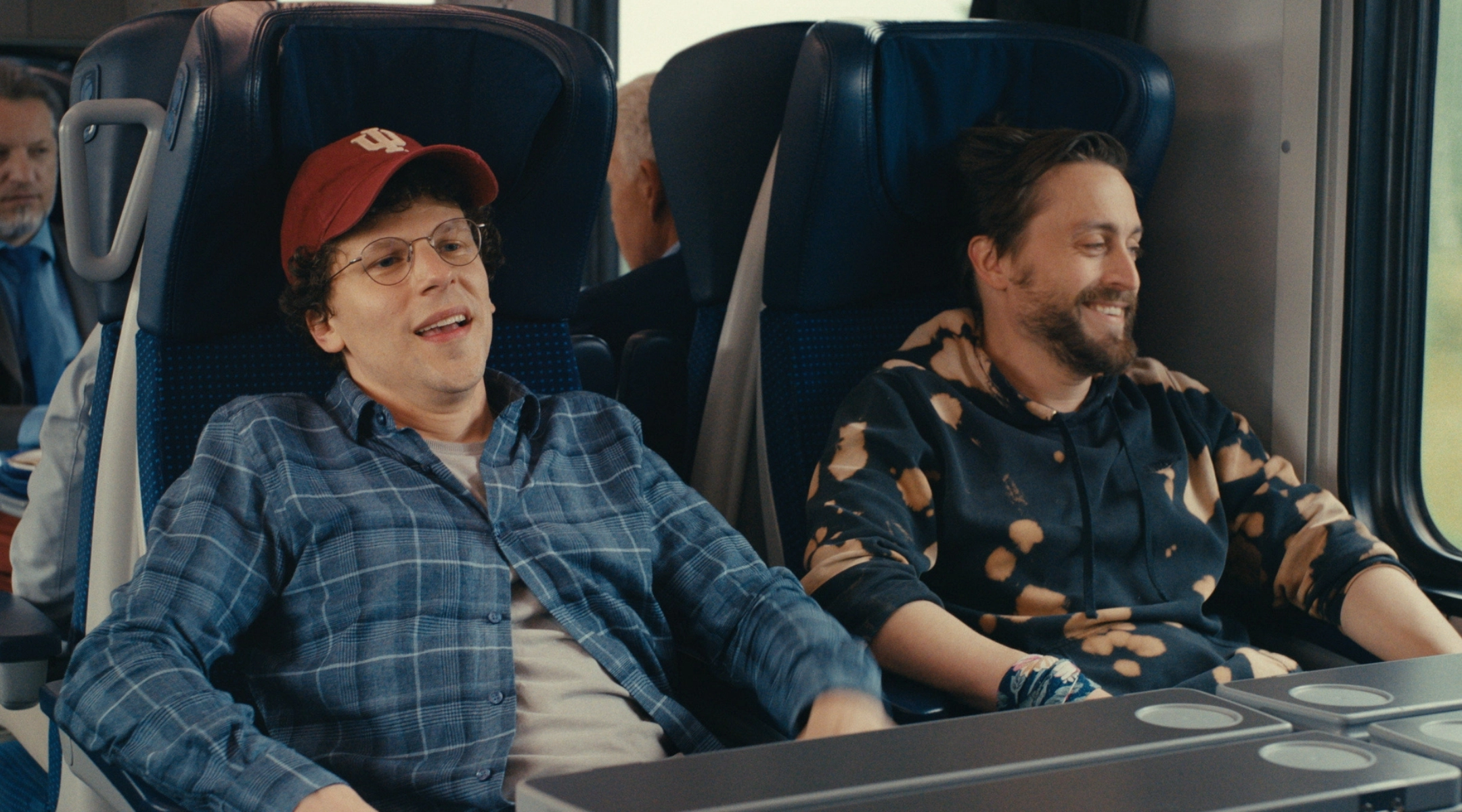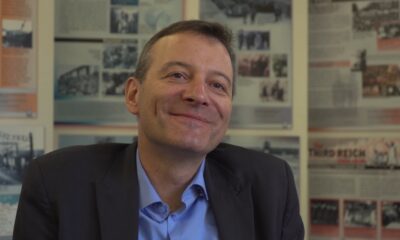
World

A gift shop at Auschwitz? New films and a graphic memoir explore the contradictions of ‘dark tourism’
JTA – In a fraught moment in the film A Real Pain, Kieran Culkin, playing the more volatile of a pair of Jewish cousins who go on a roots tour of Poland, berates his fellow travellers for riding in a first-class train car in a country where so many Jews rode cattle cars to their deaths.
A few scenes later, after breaking away from the tour group, he happily sits in first class, essentially telling his cousin, played by Jesse Eisenberg, “Screw it. We’re owed this.”
“I love that scene,” said Ari Richter, the author and illustrator of Never Again Will I Visit Auschwitz, a “graphic family memoir” describing Richter’s own visits to the places where his Holocaust survivor grandparents lived and suffered. Richter said that in the train scenes, A Real Pain expertly captures the contradictions felt by second and third-generation Jewish visitors like him on pilgrimages to a grim Jewish past.
In his book, Richter describes a visit to the Dachau camp memorial, where he is both impressed by the efforts made by the German curators to focus on “the nexus of German cruelty and Jewish suffering” – unlike the Polish guides at Auschwitz, where he learns “mostly about the suffering of non-Jewish Poles” – and touched by small gestures, like the “kosher-friendly options” on the menu at the Dachau café.
And yet …
“In a way, I know they seek my absolution,” Richter ruminates back at the hotel, “and I resent that I offer it by accepting their kindness.”
Richter’s is a multilayered book, published last summer, about his grandparents’ and great-grandparents’ imprisonment in Dachau, Buchenwald, and Auschwitz; the lives they made in America, including Tampa, Florida, where Richter grew up; and what Richter calls the safe “white American identity” he inherited. Between his grandparents’ stories, Richter asks if his relatives’ survival and second chances give him license to put the past aside, and what lessons about Jewish life and survival he’d like to pass on.
His book arrives at a perhaps not coincidental moment that includes the release of two films about such roots trips – A Real Pain and Lena Dunham’s 2024 film Treasure. They join a genre that includes Jonathan Safran Foer’s 2002 novel Everything Is Illuminated; Francine Prose’s 1997 novella Guided Tours of Hell; and screenwriter Jerry Stahl’s 2022 memoir Nein, Nein, Nein!
So-called “dark tourism” has even spawned its own academic sub-specialty. In her 2014 book Jewish Poland Revisited: Heritage Tourism in Unquiet Places, anthropologist Erica Lehrer describes encounters between Jewish tourists and Polish locals and their halting and occasionally hostile attempts to understand each other. In Dark Tourism, the Holocaust, and Well-being, three academics offer an almost comically understated review of the literature.
Comedy isn’t the first thing that comes to mind when you consider visits to death camps, but if there’s one thing the popular treatments of the visits share, it’s a mordant sense of humour. Foer’s novel, and its 2005 film adaptation, is about the Jewish author’s journey to Ukraine in search of the woman who saved his grandfather’s life during the Nazi liquidation of the family shtetl. Perhaps the best known character in the book is a local handler who speaks a comically broken English.
Prose’s novella is about an obscure playwright enduring a tour of a concentration camp led by a flamboyant and much more successful writer who himself survived the camp. The tone, like the title, is satiric and pitch black.
And in Treasure, playing a journalist who accompanies her survivor father on a trip through 1990s Poland, Dunham goes for bittersweet comedy before the inevitable visit to Auschwitz and her father’s stolen home.
The humour could be a distinctly Jewish response to tragedy, or a choice to make morbid material more palatable to a wide audience. The very idea of death camps being turned into tourist sites, with gift shops and snack bars, is the sort of “ludicrous” incongruity that everyone from Freud to Schopenhauer to Mel Brooks include in their theories of laughter. Eisenberg told interviewers that A Real Pain was inspired by an advertisement promising a “Holocaust tour, with lunch.”










